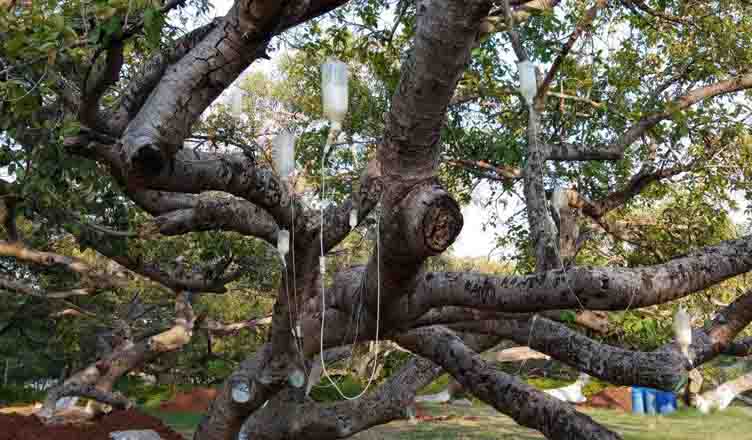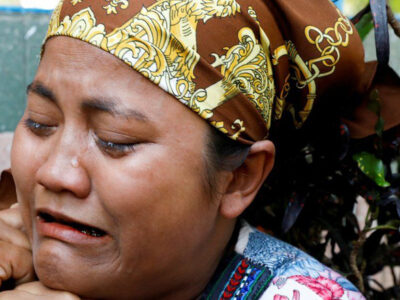(COLOMBO, LANKAPUVATH) –The Telangana forest department is administering saline treatment to a centuries-old tree in the Mahbubnagar district of the state to save its life.
The tree — touted by the state forest authorities as the second largest banyan tree in the world — is located on the outskirts of Mahbubnagar and is spread over three acres. It is locally called ‘Pillalamarri’ (children’s Banyan tree). It was a major tourist attraction till December 2017, when it was shut down after authorities noticed it was crumbling.
“There were two major reasons for the crumbling. First, right from the trunk to branches to prop roots, it was heavily infested with termites. Secondly, the branches got bent downwards with tourists using them as swings. District collector Ronald Ross immediately intervened, got the premises closed for tourists and handed over the tree’s management to the forest department,” Mahbubnagar district forest officer Chukka Gangi Reddy said.
The department authorities started administering Chloropyrifos. “It is the only effective treatment to control termites. First, we made trench around the root system and watered the root system with diluted Chloropyrifos – mixing 20 mililitre of it for every one litre of water. Next, we made holes around the affected areas of the trunk and branches pumped the diluted insecticide using pressure pumps. However, it did not work properly…” Reddy said.
It was then, the department authorities stumbled upon the idea of injecting diluted insecticide into the tree like a saline drip. “We thought sending diluted insecticide into the affected parts drop by drop like a saline drip might help. We hung hundreds of saline bottles filled with insecticide every two metres . It is working very well,” the official said.
Gangi Reddy also said arboreal experts from the Indian Institute of Chemical Technology, Hyderabad, suggested that the entire area covered by the tree be treated with insecticide, as the problem could have originated from the roots and spread due to lack of cleanliness and vandalism by tourists.
“ In any case, it will take another two or three months to eliminate the termites,” Reddy said.
(Hindustan Times)




